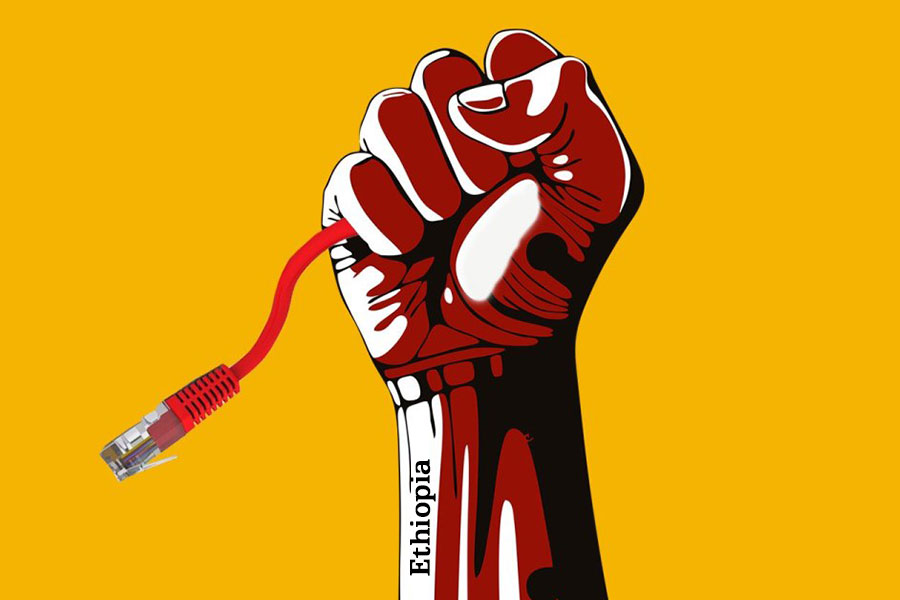
Exclusive Interviews | Feb 12,2022
Jun 17 , 2023
By Nick Barigye
The fintech revolution is sweeping across Africa, creating wealth and opportunity from Cairo to Cape Town. But, like the broader tech sector, the fintech industry suffers from a fundamental weakness: too few women.
Africa has something to boast about: the share of fintech companies founded by women is double the global average. Unfortunately, the figure is still just 3.2pc. Moreover, while 30pc of tech professionals in Sub-Saharan Africa are women, the share of women in fintech remains well below the industry average.
This does not mean that fintech has not had an impact on women.
On the contrary, it has rapidly accelerated financial inclusion for African women, from private individuals seeking to formalise their household finances to small businesses whose owners want to expand. In Rwanda, for example, fintech platforms drove a 27pc increase in women's access to financial services from 2012 to 2016. Mobile banking has increased overall financial inclusion in Kenya from only 26pc in 2006 to 84pc in 2021.
But Africa still has a long way to go. As of 2020, only 37pc of women in Sub-Saharan Africa had a bank account, compared with 48pc men.
The problem persists even in Rwanda – a regional leader in gender equality. In 2008, Rwanda became the first country in the world to elect a female-majority parliament, and today it boasts some of the world's highest rates of female participation in politics and the labour force. But, despite the progress in financial inclusion that fintech has enabled, more than three-quarters of Rwandan women still lack access to a bank account.
The inability to access financial services puts business owners at a significant disadvantage.
According to the World Bank, women-owned small and medium-sized enterprises in Africa – a significant share of all SMEs – face a 42 billion dollars credit gap. This limits their ability to expand and create jobs.
With flexible, innovative, and targeted solutions, fintech companies can help to close this gap. One reason women might struggle to access financing is that they lack a financial history or credit record – the basis of traditional creditworthiness assessments. But fintech companies can avoid this issue by using alternative data sources, such as mobile phone usage and social-media activities, which have been shown to support accurate creditworthiness assessments.
These approaches must be balanced with robust privacy and encryption solutions, ensuring trust flows between lenders and borrowers.
Another common barrier to financial inclusion – particularly in rural areas – is the lack of documentation required to open traditional bank accounts and access credit, such as government-issued IDs or proof of address. But fintech companies can allow women to access financial services using their mobile phones, using digital identity-verification technologies, such as biometric authentication.
Fintech companies can also develop financial products tailored to the needs of people who are typically excluded from the formal financial system. For example, the Ugandan company Ensibuuko, working with commercial and nonprofit organizations, designed an innovative system of digital credit, especially for farmers. Given that agriculture is the sector in which most African women are active, such initiatives could go a long way toward closing the gender gap.
But if the fintech industry is to continue to expand and strengthen financial inclusion, it needs not only to serve women but also to include them. This would benefit the women employed, the industry as a whole, and many of its clients. Women investors are twice as likely to invest in women-owned businesses than their male counterparts are, and women may be better equipped to design and deliver fintech services to women clients.
Women are more favourably served by institutions in which women hold power. This is true of any industry or service. As a recent "Nature" article pointed out, women are missing from policymaking and budgeting decisions related to healthcare most likely contributes to the underfunding of health issues faced by women. Fintech is no different.
The challenge now will be to support women's participation – and leadership – in the fintech industry. Whether in the boardroom or on the farm, women must help shape the future of African finance.
PUBLISHED ON
Jun 17,2023 [ VOL
24 , NO
1207]


Exclusive Interviews | Feb 12,2022

Advertorials | Oct 02,2023

Editorial | Mar 02,2019

View From Arada | Apr 30,2022

Editorial | Dec 26,2020

View From Arada | Jun 22,2019

Commentaries | Nov 21,2018

Commentaries | Nov 20,2021

My Opinion | Jan 07,2024

Commentaries | Dec 04,2021

Photo Gallery | 178370 Views | May 06,2019

Photo Gallery | 168570 Views | Apr 26,2019

Photo Gallery | 159364 Views | Oct 06,2021

My Opinion | 137069 Views | Aug 14,2021
Commentaries | Oct 25,2025

Dec 22 , 2024 . By TIZITA SHEWAFERAW
Charged with transforming colossal state-owned enterprises into modern and competitiv...

Aug 18 , 2024 . By AKSAH ITALO
Although predictable Yonas Zerihun's job in the ride-hailing service is not immune to...

Jul 28 , 2024 . By TIZITA SHEWAFERAW
Unhabitual, perhaps too many, Samuel Gebreyohannes, 38, used to occasionally enjoy a couple of beers at breakfast. However, he recently swit...

Jul 13 , 2024 . By AKSAH ITALO
Investors who rely on tractors, trucks, and field vehicles for commuting, transporting commodities, and f...

Oct 25 , 2025
The regulatory machinery is on overdrive. In only two years, no fewer than 35 new pro...

Oct 18 , 2025
The political establishment, notably the ruling party and its top brass, has become p...

Oct 11 , 2025
Ladislas Farago, a roving Associated Press (AP) correspondent, arrived in Ethiopia in...

Oct 4 , 2025
Eyob Tekalegn (PhD) had been in the Governor's chair for only weeks when, on Septembe...

Oct 25 , 2025 . By YITBAREK GETACHEW
Officials of the Addis Abeba's Education Bureau have embarked on an ambitious experim...

Oct 26 , 2025 . By YITBAREK GETACHEW
The federal government is making a landmark shift in its investment incentive regime...

Oct 29 , 2025 . By NAHOM AYELE
The National Bank of Ethiopia (NBE) is preparing to issue a directive that will funda...

Oct 26 , 2025 . By SURAFEL MULUGETA
A community of booksellers shadowing the Ethiopian National Theatre has been jolted b...